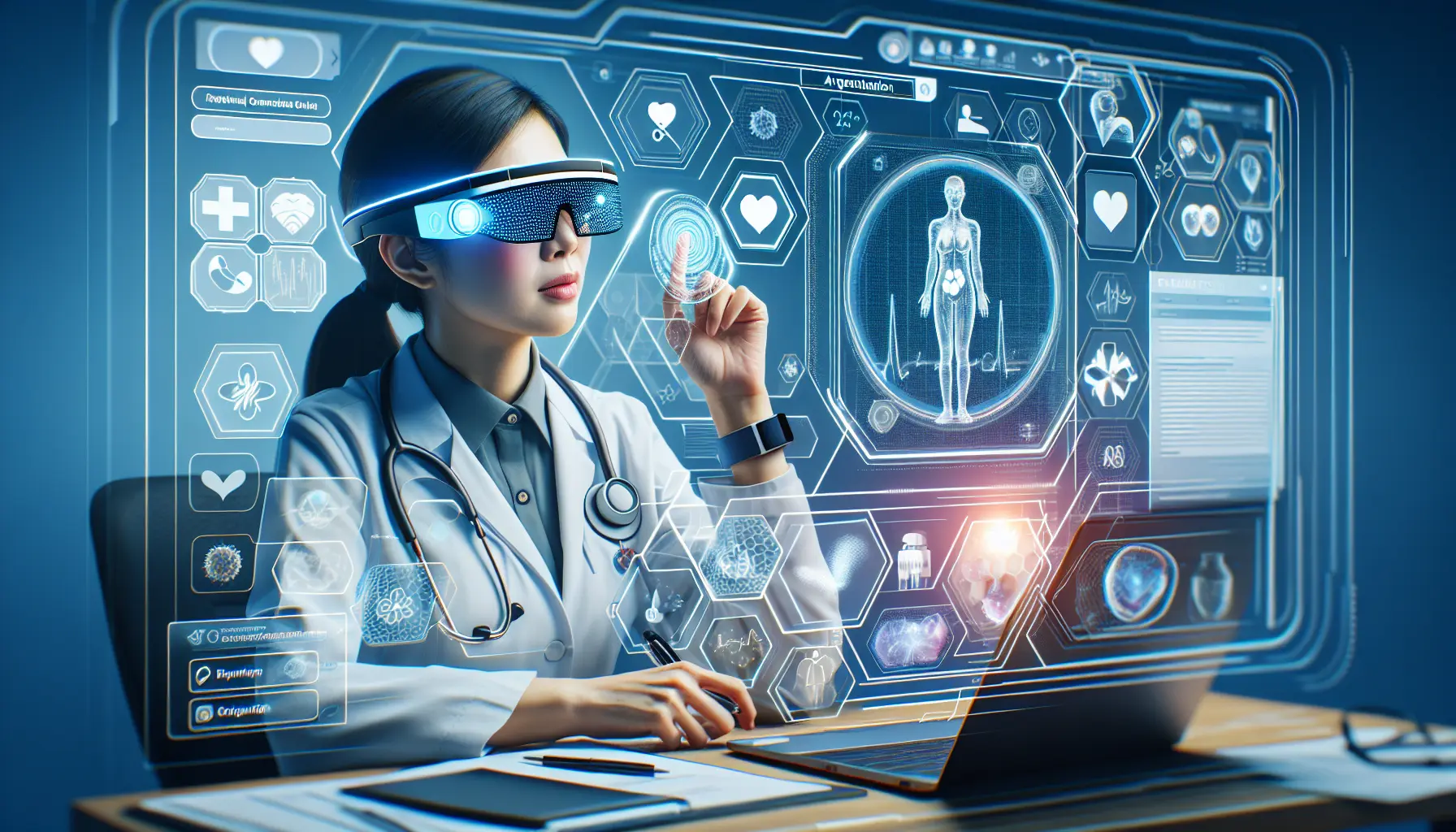Smart Glasses: A New Vision for Healthcare
The future of healthcare is becoming clearer – quite literally. Smart glasses, once relegated to the realm of science fiction, are now poised to revolutionize how doctors diagnose, treat, and interact with patients. From providing real-time access to crucial patient data to facilitating remote consultations with specialists across the globe, these wearable devices are transforming the medical landscape.
Augmenting Reality, Amplifying Expertise
At their core, smart glasses utilize augmented reality (AR) to overlay digital information onto the user's field of view. In healthcare settings, this translates to doctors having instant access to a wealth of patient information without needing to divert their attention to a computer screen or physical chart. Imagine a surgeon performing a procedure, simultaneously viewing vital signs, imaging scans, and even step-by-step surgical guides directly within their line of sight. This hands-free access enhances precision, reduces errors, and ultimately improves patient outcomes.
Benefits of Smart Glasses in Healthcare:
- Real-time Patient Data: Access vital signs, medical history, and lab results instantly, improving decision-making at the point of care.
- Remote Consultations: Connect with specialists remotely, facilitating expert opinions in real-time, particularly beneficial in rural or underserved areas.
- Hands-Free Procedures: Access critical information during surgeries and other procedures, minimizing distractions and maximizing focus.
- Training and Education: Provide immersive and interactive training experiences for medical students and residents.
- Enhanced Patient Communication: Display visual aids and translate languages in real-time, improving communication and understanding.
Telemedicine Reimagined: Bridging the Gap in Remote Care
Smart glasses are also transforming telemedicine. The ability to share a first-person perspective with a remote specialist allows for more accurate assessments and diagnoses. A rural emergency room physician, for example, can use smart glasses to stream a live video feed to a neurosurgeon hundreds of miles away, enabling the specialist to assess the patient's condition and provide immediate guidance on treatment. This capability is particularly crucial in situations where time is of the essence.
Furthermore, smart glasses equipped with integrated cameras and microphones can facilitate seamless communication between patients and remote healthcare providers. This is especially beneficial for elderly or disabled patients who may have difficulty traveling to traditional medical facilities.
Challenges and Considerations
While the potential of smart glasses in healthcare is undeniable, several challenges remain.
- Data Security and Privacy: Ensuring the privacy and security of sensitive patient data is paramount. Robust encryption and stringent security protocols are essential.
- Cost and Accessibility: The cost of smart glasses can be a barrier to adoption for many healthcare providers, particularly in smaller clinics and hospitals.
- Usability and Training: Healthcare professionals need adequate training to effectively utilize smart glasses and integrate them into their workflows.
- Regulatory Approvals: Smart glasses used for medical purposes must meet stringent regulatory requirements and obtain necessary approvals from organizations like the FDA.
The Future is Now: A Glimpse into Tomorrow's Healthcare
Despite these challenges, the adoption of smart glasses in healthcare is steadily growing. Companies like Google, Microsoft, and Vuzix are developing and refining their smart glass technologies specifically for medical applications. As these devices become more affordable, user-friendly, and secure, their impact on healthcare will only continue to expand.
We are witnessing a paradigm shift in how healthcare is delivered. Smart glasses are not just a technological novelty; they are a powerful tool that can improve patient outcomes, enhance efficiency, and ultimately, transform the future of medicine. The vision for tomorrow's healthcare is now clearer than ever before, thanks to the innovative power of smart glasses.
